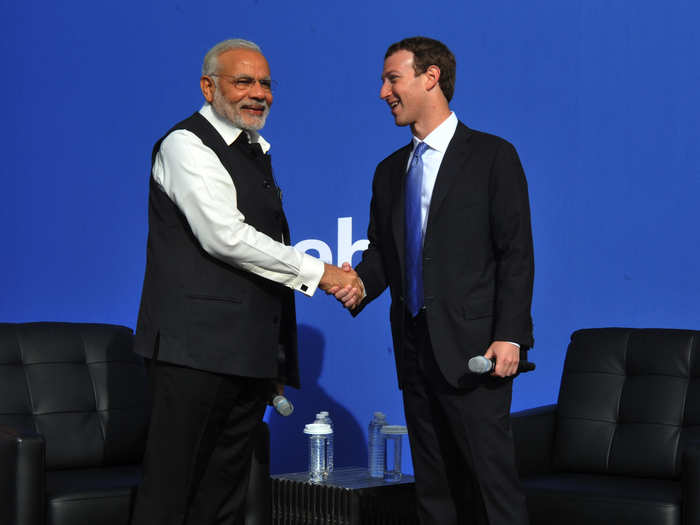India's new IT rules are making things difficult for Twitter and Facebook in the country BI India
- India’s new IT rules kick in today, May 26.
- While Facebook and Google have agreed to comply, WhatsApp — a Facebook subsidiary — is suing the Indian government.
- Here are some of the biggest issues that are making it difficult for social networking companies to comply with the Indian government new regulations.
While Facebook and Google have agreed to comply with India’s new IT rules, not everyone is on board. Facebook’s subsidiary, WhatsApp, has moved the Delhi High Court to
sue the Indian government over its new regulations.
Among the notable names, it’s only homegrown social media platform Koo, which has complied with the rules.
According to these new rules, ‘significant’ intermediaries are required to have a chief compliance officer, a nodal contact person and a grievance officer — all three of whom are required to be residents of India.
The good news is that it’s unlikely that any of these platforms are going to be banned by the Indian government. But it is not likely to give up without a fight. “The government has no power to ban any of these companies under these rules. Noncompliance results in loss of safe harbour protection for a company leading to increased liability,” explained Mishi Choudhary, the director and founder of Software Freedom Law Centre (SFLC).
Here are some of the key issues that are causing worry about social media companies like WhatsApp, Facebook, Twitter and others in India as the new IT rules come into play starting today, May 26:
1. Appoint a local officers for compliance, liaison and grievance handling
BCCL
In Brazil, Diego Dzodan — Facebook’s vice president for Latin America in 2016 — was arrested after refusing to hand over WhatsApp messages that the local authorities alleged had been sent by drug dealers. He was later released with the judge deeming his arrest an ‘unlawful coercion’.
In India, Facebook’s managing director, Ajit Mohan, wasn’t arrested but was named in a petition to the Supreme Court on Delhi Riots in 2020.
And, most recently, Twitter’s offices in New Delhi and Gurgaon were raided as the police looked into the matter of the social media platform’s ‘manipulated media’ tag.
There has always been a tussle between the ‘law of the land’ and social media platforms’ own regulations. Appointing local officers to address concerns puts them in the cross hairs of being pressured by the local authorities.
According to the Facebook Oversight Board, in their recent verdict on the suspension of former US President Donald Trump, social media companies need to take special measures to protect their employees from political pressure.
And, when you’re as big as Facebook or Google, political pressure is a given.
2. Break encryption
Pixabay
End-to-end encryption is the bread and butter of WhatsApp. Without encryption and the safety blanket of knowing that you’re not being tracked is something that the users of the social networking platform covet.
“End-to-end encryption helps negative elements from penetrating the database or exploiting confidential information and thereby providing a sort of safeguard to official communications or private confidential communications as well. The question is should the safety and confidence of users be compromised,” Neeraj Dubey, a partner specialising in corporate law at Singh and Associates, told Business Insider.
The new rules dictate that a company like WhatsApp should be to track down the ‘first originator’. According to the government, such a request will only be made when there is sexually explicit content being circulated or a threat to national security is in play.
And, what one may find offensive, another may consider to simply be an exercise in the freedom of expression.
“Technology companies need regulation but not at the expense of user rights,” said Choudhary.
3. Use AI to monitor ‘objectionable terms’
Unsplash
The Indian government also wants ‘significant’ social media intermediaries to monitor online content using artificial intelligence (AI), which, to be fair, is something that they’re already trying to do.
The problem is that while ‘pre-moderation’ can be done using AI, post and reactive moderation is normally done by humans. And the stressful conditions of taking up this job aren’t a secret — especially in cases where the task has been outsourced to third parties.
While AI is definitely necessary, there are limitations to how far it can go. Online content is constantly evolving and implementing the process at scale is a complex task. And, with more people coming online, the amount of content to moderate will only increase.
“Creating effective policies for each country requires careful consideration of the cultural beliefs, political views, historical events and laws of each country,” highlighted a report by
Cambridge Consultants. “Applying these policies separately to global content is challenging and adds complexity to moderation workflows as content may be created in one country and viewed in another.”



